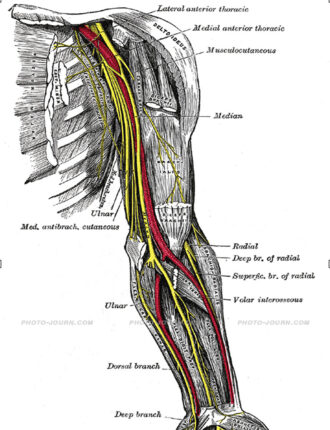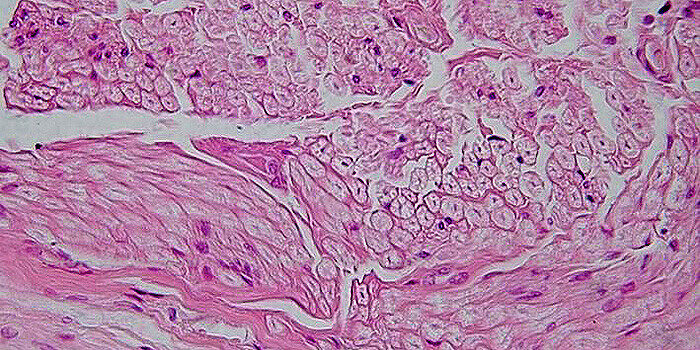Trials about to get underway in the UK may soon enable doctors to regenerate injured nerves in people and bring damaged limbs and organs back to life.
The trials follow the successful transformation of fat tissue stem cells into nerve cells by a team at the University of Manchester.
In a study published in the October edition of Experimental Neurology, Dr Paul Kingham and a team at the UK Centre for Tissue Regeneration (UKCTR) isolated the stem cells from the fat tissue of adult animals and differentiated them into nerve cells to be used for repair and regeneration of injured nerves.
They are now about to start a trial extracting stem cells from the fat tissue of volunteer adult patients in order to compare human and animal stem cells in the laboratory.
Ability to grow new nerves

The research may mean patients are one day able to to grow new nerves to replace those damaged by trauma or surgical procedure.
If the clinical trials prove positive an artificial nerve constructed from a biodegradable polymer will be developed to transplant the differentiated stem cells. The biomaterial will be rolled into a tube shape and placed between the two ends of a cut nerve with the regrowing nerve fiber passing through the tube from one end to the other.
Dr Kingham said “differentiated stem cells have great potential for future clinical use, initially for treatment of patients with traumatic injuries of nerves in the arms and legs.
“This work will also help to develop a similar surgical approach for organ transplant, to give full functional recuperation to the transplanted tissue.”
The technique could also be applicable where a nerve has to be be surgically removed or is damaged while removing a growth or tumour.
Often the removal of a prostate tumour will result in male impotency due to damage to nerves surrounding the site of the tumour.
There are more than 50,000 cases of nerve injury a year in the UK and the current method of harvesting nerve tissue from another part of the body and transplanting it as a graft is only moderately successful, often resulting in scars and tumours forming at the donor site.
While tissue engineering is at an early stage, it, along with the use of artificial nerve guides that protect and encourage the growth and regeneration of new cells, has the potential to improve the quality of life of many people.
If the clinical trials prove successful researchers hope the treatment could be ready for use in four or five years.
Feature photo Wikipedia
He has spent extensive periods of time working in Africa and throughout Southeast Asia, with stints in the Middle East, the USA, and England.
He has covered major world events including Operation Desert Shield/ Storm, the 1991 pillage in Zaire, the 1994 Rwanda genocide, the 1999 East Timor independence unrest, the 2004 Asian tsunami, and the 2009, 2010, and 2014 Bangkok political protests.
In 1995 he was a Walkley Award finalist, the highest awards in Australian journalism, for his coverage of the 1995 Zaire (now Democratic Republic of Congo) Ebola outbreak.
Most recently he was the Thailand editor/ managing editor of AEC News Today . Prior to that he was the deputy editor and Thailand and Greater Mekong Sub-region editor for The Establishment Post, predecessor of Asean Today.
In the mid-80s and early 90s he owned JLF Promotions, the largest above and below the line marketing and PR firm servicing the high-technology industry in Australia. It was sold in 1995.
Opinions and views expressed on this site are those of the author’s only. Read more at About me
Latest posts by John Le Fevre (see all)
- Kaavan’s great escape photo special (video & gallery) – November 30, 2020
- A real life fairy tale: Cambodia provides sanctuary to Kaavan, the world’s loneliest elephant (video & gallery) *updated – November 30, 2020
- Death for corruption and press freedom abused as Thailand continues Nth Korean-like slide – July 23, 2015
- Thailand’s young rice farmers boost income, slash costs with switch to organic, AWD method – May 29, 2015

